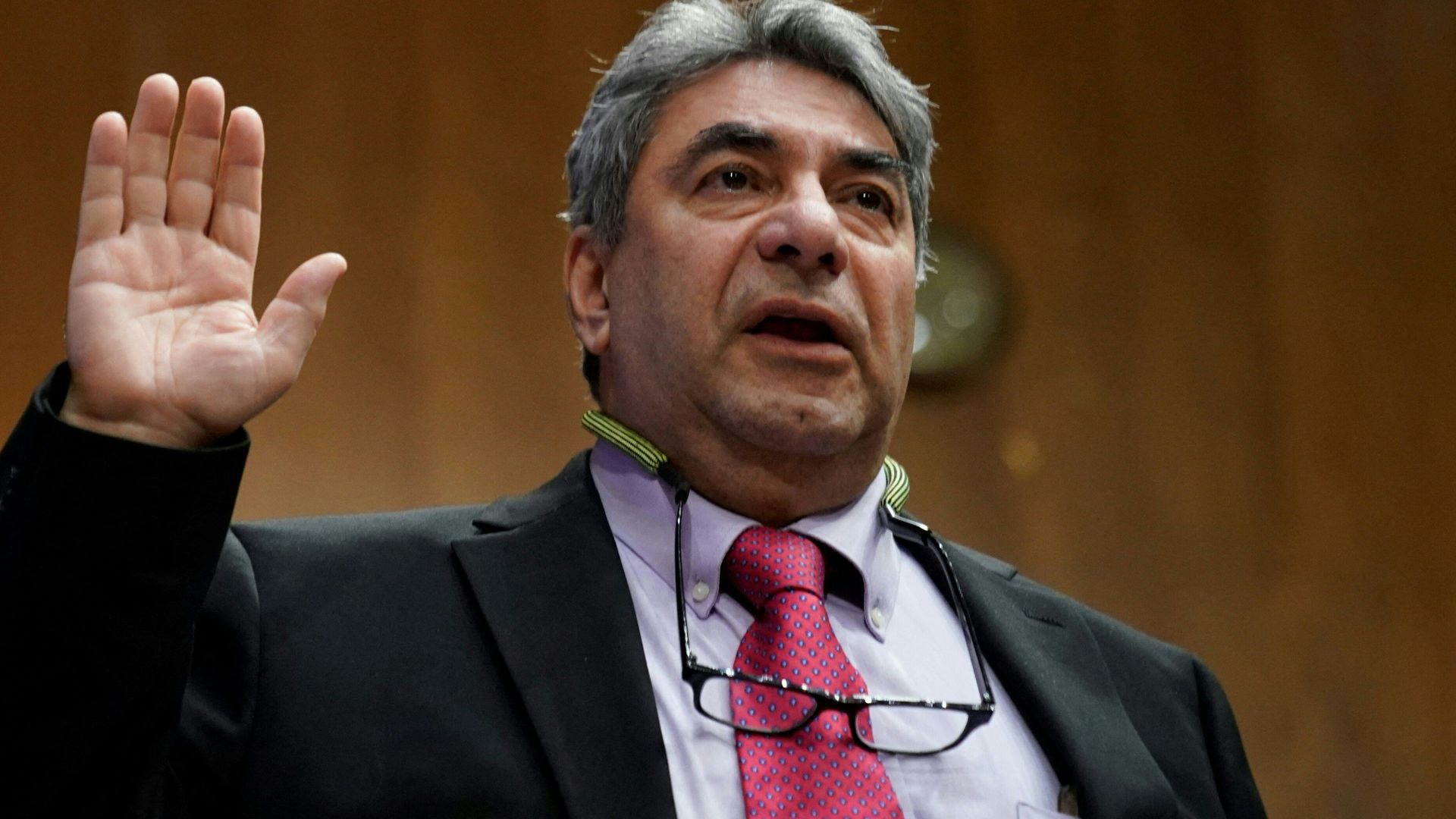
Boeing whistleblower details thousands of gaps in fuselages since 2013
Media Landscape
See who else is reporting on this story and which side of the political spectrum they lean. To read other sources, click on the plus signs below.
Learn more about this dataLeft 31%
Center 63%
Right 6%
[RAY BOGAN]
“A culture of shortcuts, pressure and hostility.”
“A good ole boy network that played by their own rules.”
That’s how whistleblowers described Boeing’s safety culture to the Senate Subcommittee on Investigations during an ongoing inquiry.
Finally, the public heard from one of the whistleblowers directly – a Boeing quality engineer.
[SAM SALEHPOUR]
“I have analyzed Boeing’s own data to conclude that the company’s taking manufacturing shortcuts on the 787 program that may significantly reduce the airplane safety and the lifecycle.
[RAY BOGAN]
Salehpour described those manufacturing shortcuts, including a failure to properly fix tiny gaps in the 787’s fuselage assembly. Salehpour says since 2013, they have failed to properly close 1,000’s of gaps at major joints.
[SAM SALEPOUR]
“Effectively they are putting out defective airplanes.”
[RAY BOGAN]
On top of the safety deficiencies, evidence was also presented that reportedly showed Boeing mistreated those who spoke out.
[RICHARD BLUMENTHAL]
“These whistleblowers have come forward at great personal risk. In fact, a number of them and others have suffered harassment, isolation, transfers, and even threats of physical violence.”
[RAY BOGAN]
Blumenthal showed a photo of a bolt that had been driven into the tire of Salehpour’s car.
[SAM SALEPOUR]
“I was sidelined. I was told to shut up. I received physical threats. My boss said, ‘I would have killed someone who said what you said in a meeting.’ And then this is not the safety culture when you get threatened by bringing issues of safety concerns.”
[RAY BOGAN]
Boeing isn’t the only problem. Testimony revealed the FAA is also failing to hold Boeing accountable.
[ED PIERSON]
“The attitude needs to change. The attitude right now is Boeing dictates to the FAA, tells the FAA what they will do, what they will accept, and that needs to change.
[RON JOHNSON]
“We need more whistleblowers. Not only in Boeing, but we need them in the airline and their maintenance departments. We need whistleblowers from the FAA. This is a very complex business. They’re complex products. It’s a complex problem.”
[RAY BOGAN]
One witness testified that it can take months for the FAA to investigate a whistleblower complaint from a Boeing employee.
[JOE JACOBSEN]
“I’m hopeful that Mr. Whitaker, the new FAA administrator, will really take on the challenge of changing the culture at the FAA so that FAA is back to doing their job as a regulator. If they just rubber stamp everything that, you know, the manufacturers do, then it’s really, they’re not doing anything useful.”
[RAY BOGAN]
Boeing did not send a representative to the hearing, despite the committee’s request to hear from CEO Dave Calhoun. However, Senator Blumenthal says the company has been cooperative and hope’s Calhoun will testify in the future.
The company told CBS News in a statement – “A 787 can safely operate for at least 30 years before needing expanded airframe maintenance routines. Extensive and rigorous testing of the fuselage and heavy maintenance checks of nearly 700 in-service airplanes to date have found zero evidence of airframe fatigue.”





